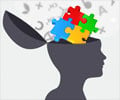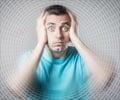- What is Mental Illness? - (https://www.triadmentalhealth.org/what-is-mental-illness/)
What is Mental Health?
"One in four people, like me, have a mental health problem. Many more people have a problem with that." - Stephan Fry
Mental illness is a medical condition that disrupts a person’s thinking, mood, emotions, ability to relate to others and day-to-day activities. Depression, obsessive compulsive disorder, anxiety, phobias and post traumatic stress disorders are some of the less severe mental disorders. Schizophrenia, multiple personality disorder and manic depressive psychosis are more severe mental disorders that distort reality due to hallucinations and delusions.

The World Health Organization (WHO) defines mental health as a state of subjective well-being, perceived self-efficacy, autonomy, competence, intergenerational dependence and self-actualization of one’s intellectual and emotional potential, among others.
Mental illnesses can affect a person of any age and are not a result of bad morals, poor upbringing or any kind of personal weakness. It may occur following a traumatic history at any stage of life. Most of us experience strong feelings of anxiety, sadness and panic at a given time and then recover over time. Mental illness occurs when these feelings interfere with coping of daily activities such as enjoying leisure time, work and relationships. Treatment for mental illness is possible with behavior modification, counseling, suggestion therapies and drugs.
There are several categorizations of mental illnesses. With respect to being in touch with reality, mental illnesses can be listed under two categories – Neurosis and Psychosis.
Neurosis
Neurosis is an exaggerated use of defense mechanisms to escape the feelings of a situation or event that the person wants to avoid. For example, showing unusual fear or anxiety to escape certain situations. Anxiety, depression, phobias and eating disorders are some types of neurosis. Although these are experienced at a smaller scale by everyone, if these feelings interfere with day-to-day activities, help must be given.
Persons with neurosis can understand that they have a problem that hinders their life routine, but they can’t resolve it themselves. Neurotics exhibit unusual anxiety to escape certain situations, though this is at their subconscious level. The anxiety experienced by a neurotic person depends on the type of the disorder.
Types of Neurotic Disorders
Anxiety neurosis: Most of us experience anxiety in certain situations like exams, interviews and so on. However, a person with neurosis may get panic attacks such as heart palpitations, numbness, fainting, chills, etc. The fears are so overpowering that the person cannot carry out the function and can hinder day-to-day activities.
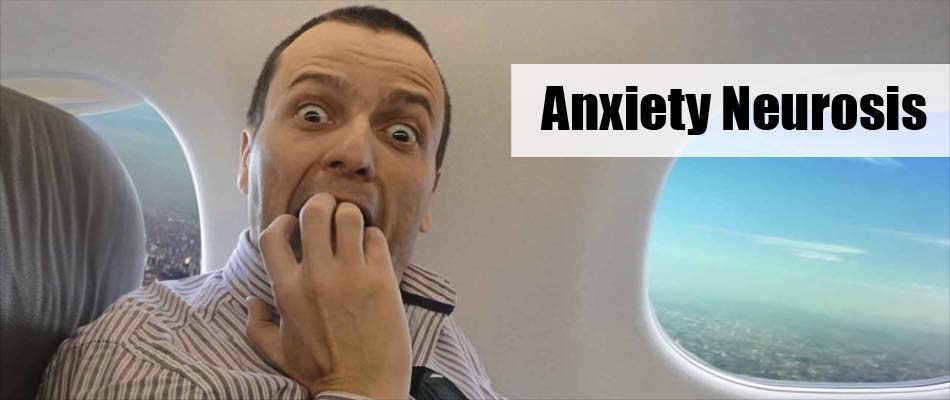
Phobias: It refers to extreme fears of certain objects or situations. They are thought to be a result of a previous bad experience and the person is affected so much that they avoid the situation totally. If faced with the situation, they get panic attacks. This condition can be treated by behavior modification and by associating the experiences with pleasant outcomes. Example: fear of heights, fear of crowded places and so on.
Obsessive-Compulsive disorder: It is a persistent unwanted thought or belief that causes anxiety and to get rid of this anxiety, the person has to perform a certain act or behave in a certain way. Example: Fear of germs is an obsession and washing of hands is act of compulsion. The person is fully aware that this fear is irrational but cannot help from doing the act to get rid of anxiety caused by the obsessive thought.
Depression: It is a serious mental health disorder that can be associated with bitter life experiences or imbalance of chemicals in the body. Feelings of sadness, hopelessness, guilt and despair are the main symptoms of depression. Normally such feelings get resolved over time, but when it is neurotic depression, it can affect the daily living of the person such as taking up responsibilities and taking care of family.
Eating disorder: Eating disorders are also similar to obsessive disorders, but pertain specifically to the eating patterns and the anxiety that it causes.
Anorexia nervosa: It is a disorder that causes reduced intake of food by the affected person. The persons are obsessed with the thought that they may become obese and reduce their food intake. Even if they eat, they try to get rid of the food in the stomach with laxatives and vomiting, before it is properly absorbed by the body. They may even over-exert themselves by exercising compulsively to spend the calories they have taken in.
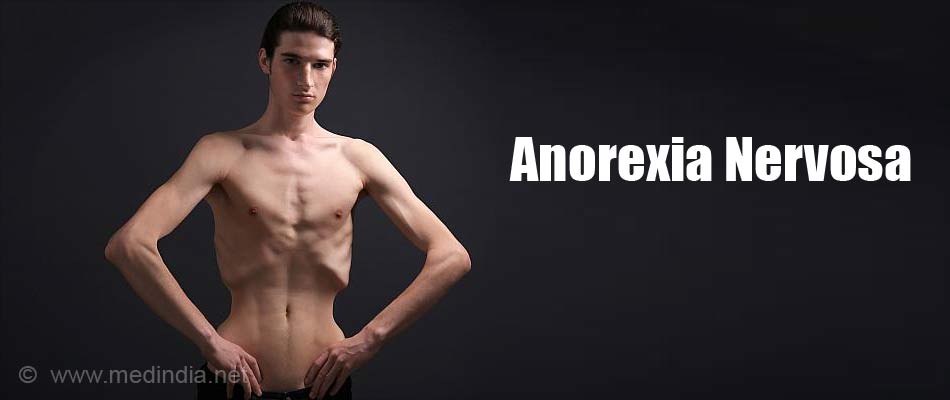
Bulimia: It is an eating disorder, in which the persons binge-eat and then induce vomiting, and starve themselves to “compensate”. The therapy involves helping to find healthier ways to eat and dealing with personal conflicts.
Psychosis
Persons with psychotic disorders do not understand that they have a problem. They live in the world of delusions and hallucinations and their behavior is a result of the beliefs based on these hallucinations. Their thought processes, beliefs and emotions are so impaired that they lose contact with reality. They also show great personality changes, dramatic mood swings, abnormal emotional responses and lack of orientation of time, place and people around them.
The three main causes of psychosis include:
- Functional – Mental illness such as schizophrenia and bipolar disorder
- Organic – Chemical imbalance, brain tumors, sleep deprivation
- Psychoactive drugs – Hallucinogens, amphetamines and barbiturates
Types of Psychotic Disorders
Schizophrenia: It refers to a group of severe mental disorders that have symptoms of hallucinations, delusions, distorted thought processes and abnormal emotions. The person is totally withdrawn from reality. Schizophrenia manifests in different ways in different individuals like some withdraw into themselves without reacting to any stimulus while others may have delusions of grandeur with unrealistic and illogical thinking.
Manic Depressive Psychosis: This type of psychosis is characterized by extreme mood swings from being very happy or extremely aggressive to totally withdrawn. During the manic phase, the person may seem to have unlimited energy and find difficulty in sleeping. During the depression stage, the person becomes extremely tired, hopeless and totally withdrawn. Such a person may even consider suicide. The person is not connected to reality, but is there is no identity loss.
Disassociative Identity Disorder: Also called Multiple Personality Disorder, the identity disorder involves a disturbance in both memory and identity of the individual. There is a presence of two or more distinct personalities within one body and each personality is not aware of the presence of the other. The cause of multiple personality disorder is thought to be extreme physical, sexual, emotional or psychological abuse, over a sustained period of time. People with dissociative personality disorder may experience various kinds of emotions. These include depression, mood swings, suicidal tendencies, panic attacks, sleep disorders, auditory and visual hallucinations and eating disorders.
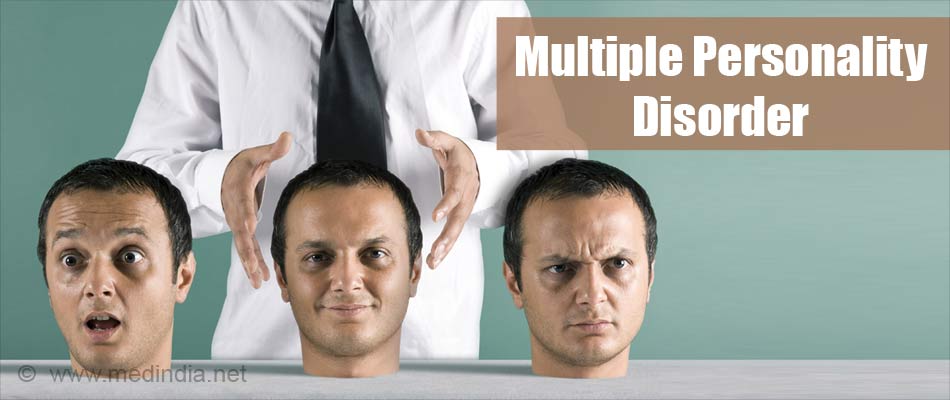
Organic Psychosis: The condition that involves delusions and hallucinations due to the effect of damage to the brain tissue is organic psychosis. The causes of organic psychosis can be untreated syphilis, heavy use of alcohol and drugs, brain tumor, meningitis and chemical imbalances in the nervous system. Some drugs can cause side-effects that result in mental disorders.
Drug-induced Psychosis: Drugs like cocaine, marijuana or cannabis and other hallucinogens can cause psychotic symptoms in an individual who is predisposed to psychosis. Early symptoms of drug-induced psychosis surface up very slowly and progress with the continued use of the drugs. The symptoms that manifest can be indicative of schizophrenia and bipolar disorders and might wear off after the effects of the drug wears off. However, the frequent and prolonged drug users can have more lasting symptoms.
Neurosis vs. Psychosis
Both neurosis and psychosis are signs of mental imbalance. They are used interchangeably in day-to-day use, but medically are quite different from each other. While neurosis refers to the inner struggles and mental and physical disturbances, psychosis is a major personality disorder marked by gross mental and emotional disturbances. Neurosis is mild mental disorder and psychosis refers to “insanity” or “madness”.
Based on the symptoms and psychopathological conditions, the psychotics and neurotics can be told apart.
Personality changes: In persons with neurosis, a part of the personality is affected, with sufficient insight into the problem. In psychosis there is a complete change in the personality, with impaired or lost insight.
Reality: Psychosis is marked by absolute distortion from reality. A psychotic with suicidal tendencies needs help in hospital or constant homecare. A neurotic understands that he has a problem, but needs help to overcome it. Neurotics are capable of managing their problem with a little external help.
Language: In psychosis, language often undergoes a gross distortion in terms of incoherent speech, grammatically incorrect sentences, and so on. The speech and thought processes are disorganized, irrational and bizarre. Delusions and hallucinations are the main culprits behind these speech and thought patterns. In neurosis, language, speech and thought process remain coherent and logical. There is no confusion due to absence of delusions and hallucinations.
Cause: Neurosis predominantly occurs due to social reasons, personal experiences and emotional disturbances. Physiological and chemical factors are insignificant in neurosis. Some types of psychotic conditions are based on organic causes. Heredity and chemical factors are also involved.

Prognosis: Symptoms of neurosis are temporary and with the will and cooperation of the patient, the treatment outcome is usually good. Treatment of psychotics is long-term, relatively constant and outcome is less favourable. Even if the person appears to become “normal”, there are high chances of relapse of the psychotic episode.
Treatment: Treatment procedures vary markedly for psychotics and neurotics. Psychotics need drugs to control their emotions, behaviour and thinking. Neurotics can benefit largely from counseling, behavior modification and suggestion therapy, although some drugs are prescribed to calm down anxiety and help induce sleep.
Although there are differences between psychosis and neurosis, there is no marked line that can separate the two mental illnesses. Studies indicate that about 4 to 7% of neurotics develop psychosis in later life. However, each condition is an independent entity with a different origin, prognosis and outcome.





